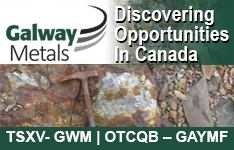Algernon Pharmaceuticals Inc. (CSE: AGN; OTCQB: AGNPF; FSE: AGW0) announced a corporate name change to Algernon Health (AGN:CSE; AGNPF:OTCQB; AGW0:XFRA), reflecting its strategic shift toward Alzheimer's Disease (AD) diagnostics. The company's new direction includes the development of specialized neuroimaging clinics across North America, featuring brain-specific Positron Emission Tomography (PET) scanners to identify amyloid plaque buildup. These optimized PET systems, already cleared by the U.S. Food and Drug Administration (FDA), offer lower radiation exposure than traditional PET/CT scanners and are covered by Medicare, Medicaid, and private insurance in the U.S.
The presence of amyloid plaques, aggregates of misfolded proteins linked to neural degeneration, is a required diagnostic step before treatment with FDA-approved monoclonal antibody therapies such as Kisunla (Eli Lilly) and Leqembi (Eisai and Biogen). Both therapies target amyloid removal and are reimbursed by U.S. insurance programs.
According to the company, the AD market's growth has strained the availability of PET scanners in the U.S., where many are prioritized for cancer or cardiac imaging. Algernon aims to meet this demand with dedicated brain imaging facilities. The company's first flagship location will be announced shortly.
In the news release, CEO Christopher J. Moreau stated that Algernon's clinics would also support imaging services for other neurological conditions, including dementia, epilepsy, neuro-oncology, and movement disorders. Additionally, the company intends to offer scanning services to clinical trial sponsors and drug development firms.
Beyond its healthcare services, Algernon retains a 20% equity stake in U.S.-based drug developer Seyltx, which is advancing the chronic cough drug Ifenprodil. Algernon also continues to oversee Algernon NeuroScience, its subsidiary focused on delivering a sub-psychedelic intravenous formulation of DMT for stroke and traumatic brain injury patients in hospital ICU settings.
Shifting Ground in Alzheimer's Imaging and Therapeutics
The Alzheimer's disease diagnostics and therapeutics market has been undergoing significant structural evolution, driven by rising global prevalence, diagnostic innovation, and a broader push toward disease-modifying treatments. In its 2025 Report, Future Market Insights noted that the global Alzheimer's therapeutics market was valued at US$4.29 billion in 2025 and was projected to reach US$10.43 billion by 2035.
The firm noted that "the demand for Alzheimer's therapeutics is accelerating due to a wave of breakthrough drug approvals, increased investment in disease-modifying therapies, and advancements in precision medicine." Analysts observed a shift away from symptom-only management toward "targeted interventions that slow disease progression," enabled by monoclonal antibodies and small-molecule inhibitors.
Future Market Insights also emphasized the role of biomarker-driven diagnostics in enhancing treatment precision. According to the report, "Enhanced biomarker detection, neuroimaging techniques, and fluid-based diagnostics are expected to revolutionize early Alzheimer's detection, leading to optimized patient outcomes." The increased integration of imaging and diagnostics was positioned as a key factor in driving therapeutic uptake and access.
In a feature article published September 2 by Nature.com, Cheryl Ball, Senior Vice President of Strategy and Corporate Development at Lantheus, highlighted the growing need for multimodal imaging tools. "Diagnostics like beta-amyloid and tau PET imaging allow clinicians to detect the specific hallmarks of AD with a high degree of accuracy, even in the early stages of disease," she said. Ball explained that the company's tau- and beta-amyloid-targeting radiodiagnostics were designed to support physicians "across the full AD continuum, from early diagnosis to ongoing treatment."
She added that combining different imaging modalities was necessary due to the complexity of Alzheimer's pathology, noting, "AD is a complex disease with two key pathological hallmarks: beta-amyloid tends to show up early, while tau accumulation is more closely linked to disease progression and cognitive decline." The diagnostic strategy being pursued emphasized complementary approaches to support clinical decision-making.
Meanwhile, market developments in the Middle East and Africa (MEA) reflected rising demand for scalable and cost-effective diagnostic alternatives. In a 2025 report from Grand View Research, the MEA blood-based biomarker diagnostics market was estimated at US$6.72 million, with growth projected to reach US$13.11 million by 2033. The firm wrote that "rising awareness of neurodegenerative diseases, coupled with an aging population across the region, is fueling demand for early detection tools."
The report pointed to blood-based biomarkers (BBMs) as a primary driver of growth in regions with constrained imaging infrastructure. According to the analysis, "NIH-reported studies show blood tests identifying AD with ~90% accuracy, while real-world evaluations of PrecivityAD2 demonstrate that BBMs change clinician-reported AD probability and alter downstream care." These findings suggested an increasing role for BBMs in reshaping diagnostic strategies, especially in markets where PET imaging remains limited.
Across regulatory environments, MEA countries were reportedly aligning with international benchmarks. The report stated, "Regulatory bodies in MEA are increasingly influenced by international benchmarks, such as the FDA's 2025 approval of the first Alzheimer's blood test." This shift was said to be encouraging broader BBM adoption through improved approval pathways and reimbursement frameworks.
Brain First, Business Next: Catalysts For Algernon
Algernon's near-term focus centers on launching its first brain-specific PET scanning clinic in the U.S. as specified in its corporate fact sheet. The company plans a mix of corporate-owned clinics and possibly franchise locations to accelerate its North American expansion. This rollout is backed by recent regulatory tailwinds, including FDA approvals for amyloid-clearing drugs and for new PET scanning technologies such as the Positrigo NeuroLF, an ultracompact brain PET scanner covered by U.S. health insurance programs.
Streetwise Ownership Overview*
Algernon Health (AGN:CSE; AGNPF:OTCQB; AGW0:XFRA)
The company believes that its presence in the Alzheimer's sector leverages multiple advantages: diagnostic prerequisites tied to reimbursement eligibility, a growing patient population, and a significant shortage of PET scanning resources currently allocated to oncology and cardiology.
Algernon's proposed network of specialized clinics aims to directly serve this gap while also supporting the broader pharmaceutical pipeline, which includes over 160 AD therapies in development requiring imaging verification for clinical trials.
Ownership and Share Structure
According to the company, management and insiders own about 11% of the company, and about 21% is owned by institutions. The rest is with retail.
Top shareholders include Alpha North Asset Management with 20.52%, Chief Executive Officer Christopher Moreau with 5.05%, Chairman of the Board Harry Bloomfield with 1.97%, and Chief Financial Officer James Kinley with 1.4%, and Director Rajpaul Attariwala with 1.2%.
| Want to be the first to know about interesting Biotechnology / Pharmaceuticals investment ideas? Sign up to receive the FREE Streetwise Reports' newsletter. | Subscribe |
Important Disclosures:
- Algernon Health has a consulting relationship with Street Smart an affiliate of Streetwise Reports. Street Smart Clients pay a monthly consulting fee between US$8,000 and US$20,000.
- As of the date of this article, officers and/or employees of Streetwise Reports LLC (including members of their household) own securities of Algernon Health.
- James Guttman wrote this article for Streetwise Reports LLC and provides services to Streetwise Reports as an employee.
- This article does not constitute investment advice and is not a solicitation for any investment. Streetwise Reports does not render general or specific investment advice and the information on Streetwise Reports should not be considered a recommendation to buy or sell any security. Each reader is encouraged to consult with his or her personal financial adviser and perform their own comprehensive investment research. By opening this page, each reader accepts and agrees to Streetwise Reports' terms of use and full legal disclaimer. Streetwise Reports does not endorse or recommend the business, products, services or securities of any company.
- This article does not constitute medical advice. Officers, employees and contributors to Streetwise Reports are not licensed medical professionals. Readers should always contact their healthcare professionals for medical advice.
For additional disclosures, please click here.











































